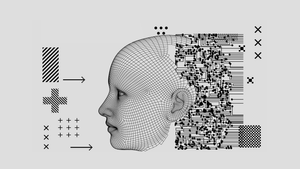An open letter co-signed by thirteen creator organisations representing the voices of more than 1.7 million creators and performers has been delivered to the European Union’s new Commissioners overseeing technology and culture, Henna Virkkunen and Glenn Micallef.
The letter urges the EU to “directly address the profound disruption caused by the uptake of generative AI” on the creative industries, “as well as its impact on creation and cultural diversity”. Among the signatories of the letter are music creator groups ECSA, FIM and IAO, which represent composers and songwriters, musicians, and featured artists.
The current “unenforced and unbalanced” EU legislative framework governing generative AI “does not protect our creative community” and “ignores the specificities of the cultural and creative sectors”, says the letter. In particular, the signatories highlight concerns about how AI companies are exploiting the text and data mining copyright exception introduced in the EU’s 2019 copyright directive. Meanwhile, they add, the more recent EU AI Act - although broadly welcomed - will “only serve as a temporary fix”.
Virkkunen has the role of Executive Vice-President for Tech Sovereignty, Security And Democracy within the new EU Commission, while Micallef is Commissioner for Intergenerational Fairness, Youth, Culture And Sport.
The letter notes that recent ‘mission letters’ setting out the priorities of the new Commissioners said there would be a focus on “developing an AI strategy for cultural and creative industries” and “the need to further improve the copyright framework to address new challenges raised by market and technology developments”.
As the EU begins work on those topics, the creator groups want the commissioners to pay attention to how the “darker aspect” of generative AI is addressed. A primary concern here is, say the creators, that most of today’s generative AI models “have been trained in full opacity on enormous amounts of copyright-protected content and personal data, scraped and copied from the internet without any authorisation nor any remuneration for the creators we represent”.
A particular criticism by the creator groups is that they believe that the data mining exception introduced in 2019 has been interpreted in such a way that it can be used by AI companies to justify using copyright protected material for generative AI training without obtaining the explicit permission of copyright owners.
Although copyright owners can opt out of data mining exceptions in EU copyright law - meaning that material under an opt-out cannot be used without permission - the creator organisations say that there are various issues with that opt out, especially for individual creators, and that those issues are being exploited by AI companies.
While the data mining exception in the 2019 directive doesn’t specifically talk about AI training, “the European Commission appears to have retrospectively interpreted this exception broadly and without democratic overview”, says the letter, resulting in “the systematic and extensive use of creators’ protected works and performances without any authorisation”.
None of the organisations’ members have “been able to reserve their rights efficiently” in order to opt out, and there is “still significant uncertainty regarding the opt-out and how authors and performers can exercise it”. As a result, “generative AI providers have put the cart before the horse” and are steaming ahead and using the data mining exception “without even giving a chance to creators to provide their consent and exercise their right of reservation”.
The other key concern of the creator community is the lack of transparency about what works any one AI company has used during its training processes. The EU AI Act does include some transparency obligations, but that will only be effective if the new regulations are “concretely enforced”, the open letter says.
Even then, much more still needs to be done, say the signatories. “Even with proper implementation, the AI Act will only serve as a temporary fix for a much larger problem unless an ambitious AI strategy for the cultural and creative industries is developed to ensure informed consent and remuneration for authors and performers”.
It’s that ambitious strategy that the creator groups want Virkkunen and Micallef to deliver, and as they embark on that work, says the letter, they must ensure that “the principles of transparency, consent and remuneration of authors and performers” are placed at “the heart of all future initiatives for an ethical and fair use of AI”.

